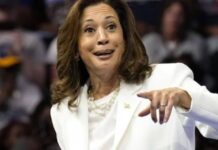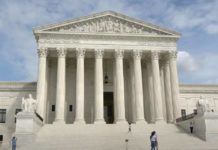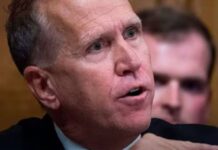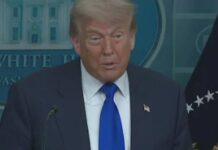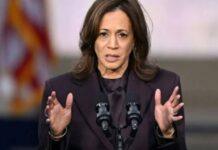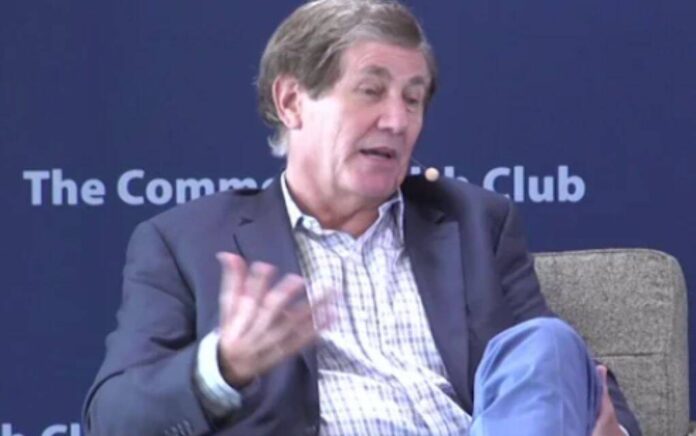
Democrats covered up Joe Biden’s cognitive decline for months. But now that he’s out of office, the secrets are coming out.
And this Leftist news anchor has revealed what Biden’s true condition is like behind closed doors.
In the summer of 2024, the Democratic Party faced a political firestorm that would reshape the presidential race. At the center of it was President Joe Biden, whose faltering performance in a June 27 debate against Donald Trump sparked a wave of concern among Democrats.
A new book, Uncharted: How Trump Beat Biden, Harris, and the Odds in the Wildest Campaign in History by Chris Whipple, released on April 8, pulls back the curtain on the internal struggles that followed. Among the most poignant revelations is ABC News anchor George Stephanopoulos’ reaction to his July 5 interview with Biden, which he described as “heartbreaking up close.”
According to Whipple, the debate left Democrats scrambling to contain the fallout. Biden’s uneven showing—marked by moments of confusion and difficulty articulating his thoughts—ignited calls from some party members to replace him on the ticket. To calm the growing unrest, the White House agreed to an interview with Stephanopoulos, host of This Week, hoping to project strength and reassure voters of Biden’s fitness to lead. The stakes were high: a strong performance could quiet the critics; a weak one could fan the flames.
But the interview, as Whipple recounts, did little to ease concerns. Biden appeared “hoarse and semi-coherent,” struggling to deliver the clarity the moment demanded. Stephanopoulos, known for his incisive questioning, approached the president with a gentle touch.
“Stephanopoulos questioned the president gently, like a grandson,” Whipple writes, capturing the delicate balance the anchor struck. Afterward, Stephanopoulos shared his candid reaction with Whipple via email: “Heartbreaking up close.”
That sentiment echoed beyond the interview. Just days later, TMZ captured Stephanopoulos on the street when a passerby asked if Biden should step down. “I don’t think he can serve four more years,” he replied—a blunt assessment that raised eyebrows.
An ABC News spokesperson quickly clarified to Fox News Digital that the anchor was sharing “his own point of view and not the position of ABC News.” Still, the moment pointed to the gravity of the situation.
Biden’s responses during the interview only deepened doubts. At one point, he described doing the “goodest job” he could, a phrase that landed awkwardly in the ABC News transcript. When asked if he had watched his debate performance, Biden seemed uncertain, replying, “I don’t think I did, no.” For a party desperate to project confidence, these moments were far from reassuring.
Less than three weeks later, on July 21, Biden announced he would not seek re-election, a decision that stunned the nation and upended the Democratic campaign. Whipple’s book reveals the intense behind-the-scenes clashes between Biden’s team and party leaders, who grappled with how to navigate an unprecedented crisis. The Stephanopoulos interview, meant to steady the ship, instead became a turning point—one that laid bare the challenges Biden faced and the party’s struggle to chart a path forward.
The Cover-Up: How Democrats Shielded Biden’s Decline
What Whipple’s account only hints at, however, is the lengths to which Biden’s inner circle and Democratic leaders went to conceal concerns about his cognitive health before the debate thrust them into the open. For months, if not years, whispers about Biden’s mental sharpness had circulated among political insiders. Yet, the White House and top Democrats worked diligently to manage his public appearances, limiting unscripted moments and carefully curating events to minimize scrutiny.
Staffers often framed Biden’s lighter schedule and occasional gaffes as quirks of an experienced leader rather than signs of decline. Press conferences were kept brief, and interactions with reporters were tightly controlled.
When questions about his age or health arose, allies like Vice President Kamala Harris and senior aides deflected with talking points about Biden’s resilience and legislative accomplishments. The strategy was clear: keep the focus on policy and away from the man himself.
This approach held until the debate, when Biden’s struggles were broadcast to millions in real time. Even then, some Democrats initially rallied to his defense, insisting he could still lead. Behind closed doors, however, panic set in.
Party leaders faced a grim reality: the public had seen what they’d long tried to downplay. The Stephanopoulos interview was a last-ditch effort to salvage Biden’s candidacy, but it only confirmed what many already suspected.
The decision to delay acknowledging Biden’s limitations wasn’t just about loyalty—it was about political survival. Democrats feared that an earlier pivot to a new candidate would fracture the party and alienate voters. By holding the line as long as they did, they hoped to buy time to unify behind a successor. But the cost was steep: eroded trust among voters and a chaotic scramble to regroup after Biden’s exit.
In the end, the effort to shield Biden’s decline couldn’t outrun the truth. The debate and its aftermath forced a reckoning, exposing not just the president’s vulnerabilities but the party’s reluctance to confront them head-on. As Whipple’s book makes clear, those weeks in the summer of 2024 were a defining moment—one that reshaped the election and left an indelible mark on the Democratic Party’s future.
Stay tuned to The Federalist Wire.


